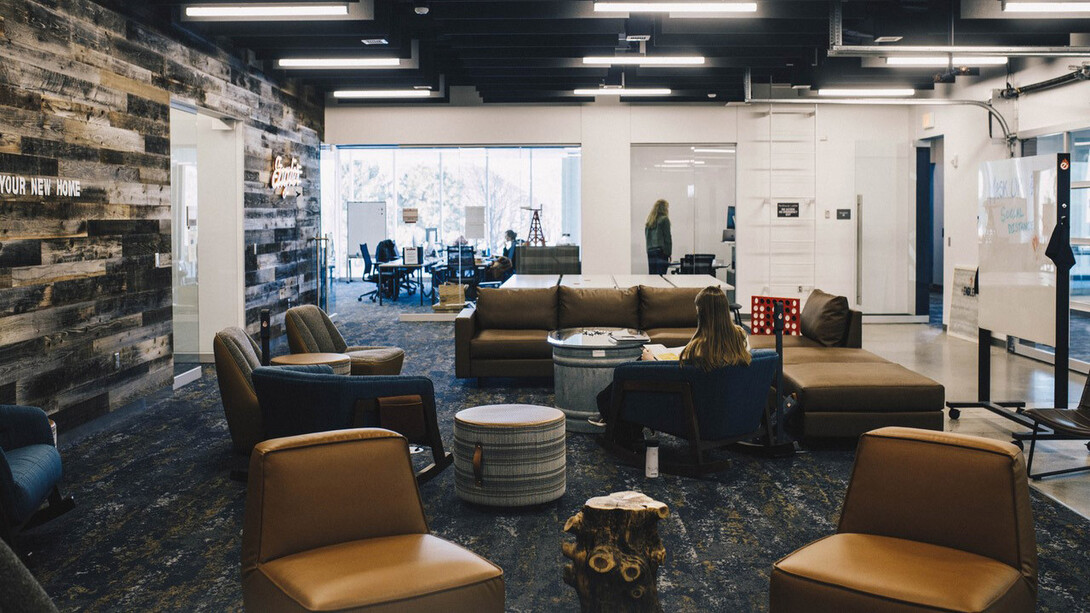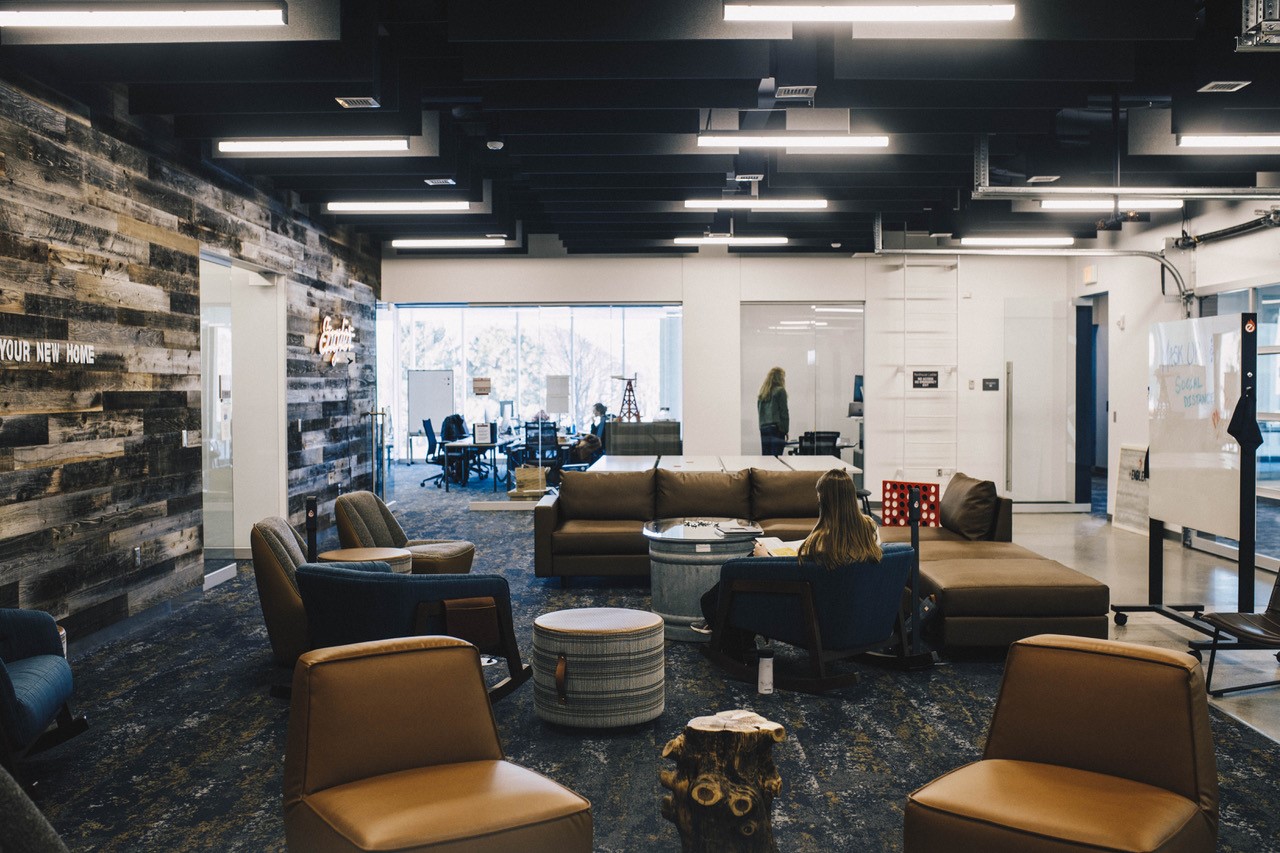
Diving into a new chapter inside the Dinsdale Family Learning Commons on the University of Nebraska–Lincoln’s East Campus, the Engler Agribusiness Entrepreneurship Program provides a purposeful environment for ideas and people to thrive.
The program is focused on providing experiential, community-based learning to help students build their own businesses from the ground up. Students learn how to create a business plan, make sound financial decisions, practice creative problem-solving and trouble-shooting, and market their business, among other skills. The Engler program also aims to help students think outside the box to address old problems in new ways.
Saying goodbye to the red bricks of Miller Hall was difficult for students, staff and faculty within the Engler community, given the history and development that took place there. However, the culture and community Engler provides cannot be defined by a space, said Tom Field, director of the Engler program. Engler entrepreneurs are grateful for the donors who made possible the transformation of the C.Y. Thompson Library into the new, state-of-the-art Dinsdale Family Learning Commons.
Field said that nearly two months in, students have already embraced the space as their new home, recognizing the value it creates.
“We’re creating an environment in which purpose-driven people can find a path to create opportunities for others, and entrepreneurship and free enterprise is the key to that,” he said.
“We’re not just producing people who want to go out and make a lot of money and leave the state. We produce people who are purposeful, intentional, thoughtful and caring about the communities from which they come, who have a deep sense of devotion to the place they grew up, and that’s important.”
The program has adopted the mantra “sweep the shed” when it comes to caring for its new home. Modeled after the philosophy of the New Zealand All Blacks rugby team, this means:
Never be too big to do the small things;
Live the Engler pillars;
Do the right thing even when no one is watching.
The new space provides a mixture of private offices, studios, collaboration rooms and open-concept community spaces modeled after the essence of a farmstead home. The design allows students to gather, discover, collaborate and get down to business.
The Engler program was founded through a gift from the Paul and Virginia Engler Foundation in Amarillo, Texas, and the new space honors Paul’s life. From small-town Nebraska, he became a business leader, establishing the first cattle-feeding operation in Texas. His legacy trickles down to Engler students and alumni across Nebraska and beyond as they work to transform their corner of the world.

Among the Engler students soon to become alumni of the program is Brock Vetick, a senior agricultural economics major and Engler minor, who is set to graduate in December.
As Vetick continues to work through the challenges of hybrid learning at Nebraska, he said the Engler program has been a constant throughout the pandemic, maintaining virtual events and other opportunities to interact with the Engler community in person and online.
“Time and time again, it’s been the people who have drawn me to this program,” Vetick said.
“The people and culture here are different in a great way. The Engler people are go-getters; they do not like the status quo. They want to do their own thing to do some good in the world; they don’t want to work for someone else’s vision.”
Vetick said his favorite space in Engler’s new home is a large table in the living room and kitchen area, built by an Engler alum. He said it feels like sitting around the kitchen table to eat.
“I can’t even imagine the conversations that will happen around that table in the future, and the business partnerships and friendships that will be formed, and deals that will be struck,” he said. Serving students across the university, the Engler program also offers curriculum and support to entrepreneurship development in Nebraska high schools and connects Nebraska entrepreneurs to resources.
The Engler community is grateful for the donors who have invested in the young people of Nebraska, who will generate creative ideas and solutions to solve problems impacting people beyond the state, Field said.
“The dollars that are coming in that allowed this project … to happen … came because there were entrepreneurial people who went out and made a difference in the world,” Field said.
“I’m just hopeful that, for the next half-century or century, there are a lot of our graduates who start companies and then follow Paul’s example by giving back to the next generation of entrepreneurs.”










